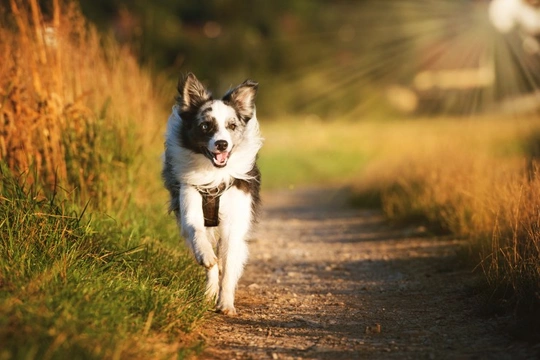
Why is recall the hardest command to teach?
When it comes to training dogs and managing their behaviour on a day to day basis, some dogs are definitely easier to train than others, and this often follows broad norms across different breeds.
Certain highly intelligent breeds like the Poodle can often be taught a wide range of complex commands, while dogs that fall at the bottom of the canine intelligence scale like the Afghan hound may only be able to follow a couple of basic commands, no matter how hard you work at it.
However, if there is one single training command that is more likely than any other to cause problems when it comes to teaching dogs and getting a reliable response from them, it is surely the recall command-the command that you use to call your dog back to you when they are off the lead.
For many dogs, their recall skills are reliable under normal circumstances, such as if they are simply exploring and sniffing around-but in other situations, such as if they are playing or chasing something or are apt to run off, dogs that reliably respond to recall in other situations may develop a form of selective deafness.
This is a problem that can commonly face both highly experienced dog owners and novices alike-but why is this the case? Why is it so hard in some cases to teach reliable recall to dogs? In this article, we will attempt to answer this question. Read on to learn more.
Recall and reward
The crux of the matter when it comes to whether or not a dog will exhibit reliable recall lies upon dogs and their perception of reward. When your dog won’t come back to you when you call, this is because the perceived reward to them if they come back is not as great as the reward they are getting if they stay away-because something else has caught their attention or they are simply having too much fun.
This means that in order to improve your dog’s recall, you have to reinforce in their minds that the greater reward always comes from compliance and not whatever else is going on around them-which is why teaching recall usually means getting through lots of treats! Additionally, if you get stressed or wound up when your dog will not respond, or do not praise them when they do (even if they have been running you ragged for half an hour) returning to you will actually come with a negative reinforcement for your dog, increasing their chances of avoiding you!
Recall over distance
When your dog is off the lead, it is a good idea to keep them in sight and earshot at all times, so that you can recall them if needed before they get too far away. However, having a wider distance between you and your dog can reduce the chances of achieving reliable recall, for a variety of reasons.
First of all, your dog will not be able to hear you as clearly when you call-and while they can usually still hear you from quite some distance away, the urgency and onus to comply is lost, and so your voice may simply become background noise to your dog.
Additionally, dogs have better vision over distance for movement than they do for static objects, and so accompanying your recall with a clear hand signal (that takes your arm outside of the frame of your body) may help.
Recall in the face of stimulus
While many dogs will come when called under normal circumstances, achieving reliable recall when a lot is going on, such as other dogs playing, people walking or the possibility of food being offered elsewhere is a whole other ball game.
The principle of recall and reward comes into play more strongly than ever here, as the odds increase in terms of the reward your dog perceives by staying away. This sort of situation (one with lots of stimulus around) is not the best scenario in which to be teaching your dog recall until they have begun to exhibit the skill reliably under normal circumstances.
However, if you have already laid down the groundwork with your dog by teaching them reliable recall with treats under normal situations, the command should ultimately begin to trigger an automatic response in your dog’s mind-the reward pathways in their brains are already prioritising your voice over the other stimulus, because they so strongly associate recall with reward.
Breed tendencies and recall
It is certainly true to say that teaching reliable recall is much harder in some breeds of dog than others, because some breeds have incredibly strong hunting instincts, and become very one-track minded when on the go. This includes all of the sighthound breed and many terriers, as well as foxhounds and other breeds used for hunting.
This is because their inherent nature relies upon their prey drive, and once the prey drive takes over, they are highly unlikely to respond to you out of choice. It is not impossible, however, and there is no excuse not to try-but with certain breeds, muzzling and being speculative about where you let them off the lead is important too.



